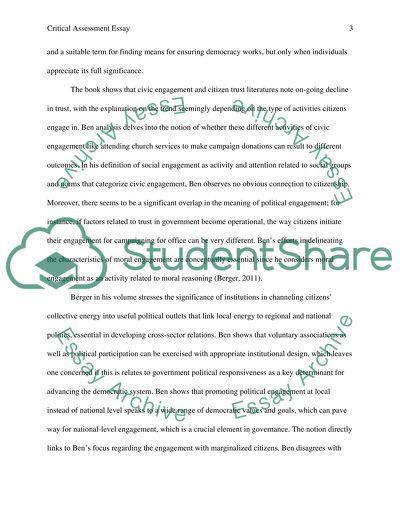Cite this document
(“Attention deficit democracy: The paradox of civic engagement Book Report/Review”, n.d.)
Attention deficit democracy: The paradox of civic engagement Book Report/Review. Retrieved from https://studentshare.org/history/1480758-book-critical-assessment-essay
Attention deficit democracy: The paradox of civic engagement Book Report/Review. Retrieved from https://studentshare.org/history/1480758-book-critical-assessment-essay
(Attention Deficit Democracy: The Paradox of Civic Engagement Book Report/Review)
Attention Deficit Democracy: The Paradox of Civic Engagement Book Report/Review. https://studentshare.org/history/1480758-book-critical-assessment-essay.
Attention Deficit Democracy: The Paradox of Civic Engagement Book Report/Review. https://studentshare.org/history/1480758-book-critical-assessment-essay.
“Attention Deficit Democracy: The Paradox of Civic Engagement Book Report/Review”, n.d. https://studentshare.org/history/1480758-book-critical-assessment-essay.


